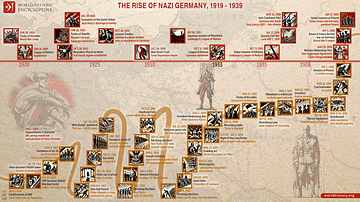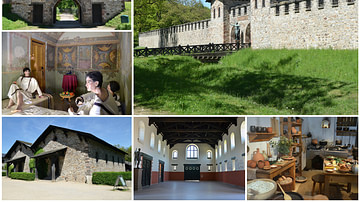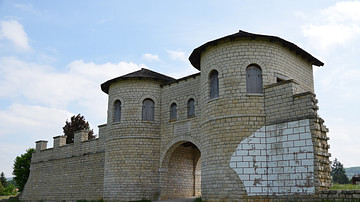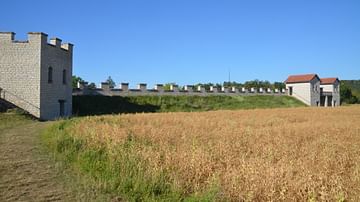Illustration
Johannisburg Palace, the second residence of the Electoral Archbishops of Mainz until 1803, is located in the centre of Aschaffenburg on the banks of the Main, Bavaria.
The mighty four-wing complex, built between 1605 and 1614 under Archbishop Johann Schweikard von Kronberg, is one of the most important palace buildings of the late German Renaissance. For this new building, the Strasbourg master builder Georg Ridinger only took over the keep as the fifth tower from the medieval predecessor castle. At the end of the 18th century, the interior of the castle was redesigned in a classical style according to plans by the architect Emanuel Joseph von Herigoyen. After the heavy destruction in the Second World War, the exterior of the castle first had to be restored before the first showrooms and collections with the rescued pieces of furniture could be reopened in 1964.
A picture gallery with works by Lucas Cranach the Elder can be visited, as well as the palace chapel with Renaissance altar, pulpit and portal sculptures by Hans Juncker, the parament chamber with vestments from the former Mainz cathedral treasury, the cork model collection of antique buildings, the princely living quarters furnished with neoclassical furniture and the municipal palace museum.
A special feature is the world's largest collection of architectural models made of cork. Under the title "Carrying Rome over the Alps", 45 models invite you to take an entertaining stroll through ancient Rome. Built between 1792 and 1854, the replicas reproduce the Eternal City's most famous ancient architecture in incredible detail. You can see, among other things, the Colosseum, the Pantheon, the triumphal arches of the Roman emperors Titus, Septimius Severus and Constantine, the Porta Maggiore and the Pyramid of Cestius. The architectural models were made by the court confectioner Carl May (1747-1822) and his son Georg May (1790-1853).
About the Author
Cite This Work
APA Style
Manea, I. (2022, July 06). Castle Johannisburg. World History Encyclopedia. Retrieved from https://www.worldhistory.org/image/16047/castle-johannisburg/
Chicago Style
Manea, Irina-Maria. "Castle Johannisburg." World History Encyclopedia. Last modified July 06, 2022. https://www.worldhistory.org/image/16047/castle-johannisburg/.
MLA Style
Manea, Irina-Maria. "Castle Johannisburg." World History Encyclopedia. World History Encyclopedia, 06 Jul 2022, https://www.worldhistory.org/image/16047/castle-johannisburg/. Web. 26 Apr 2025.








